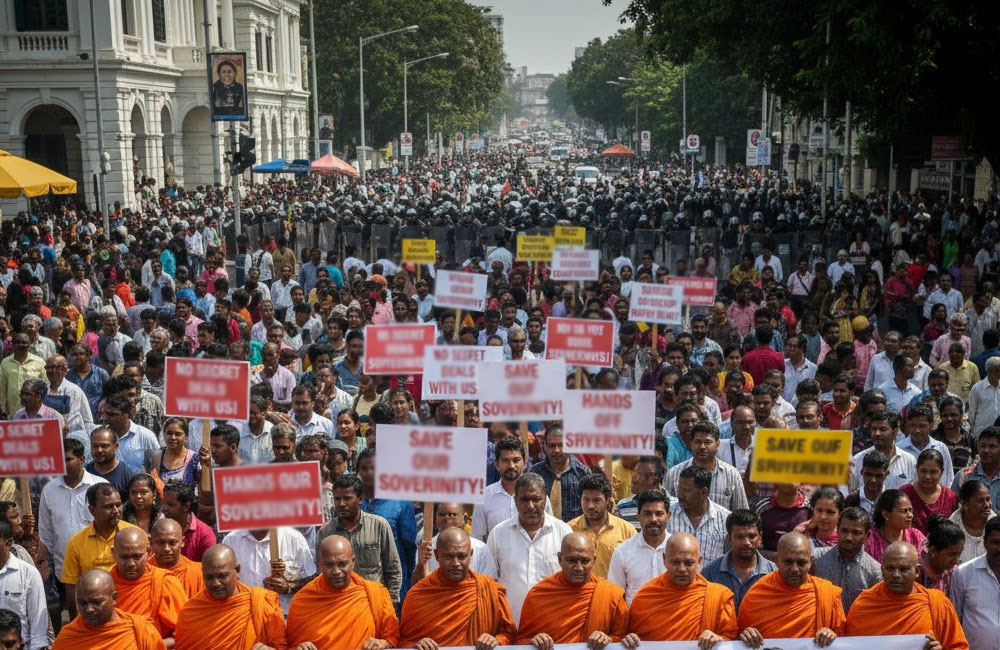Sri Lanka’s political landscape has been jolted by fierce public backlash following the government’s decision to sign a Defence Memorandum of Understanding with the United States under the State Partnership Program (SPP).
The MoU, endorsed at a high-profile ceremony in Colombo recently attended by the U.S. Ambassador inSri Lanka Julie Chung, establishes formal defence cooperation between Sri Lanka’s Ministry of Defence, the Montana National Guard, and the U.S. Coast Guard District 13.
At the ceremony, the U.S. Ambassador framed the agreement as a continuation of a partnership built over several years.
She highlighted joint training exercises since 2021, from humanitarian missions such as ATLAS ANGEL 2024 and PACIFIC ANGEL 2025 to Coast Guard training on oil-spill response in Seattle.
According to her, the SPP “is not merely about defence it is about connection, shared learning, and building long-term bonds between the American Midwest and Sri Lanka.”
Yet these warm diplomatic sentiments have ignited a political firestorm at home. Opposition MPs, civil society groups, Buddhist clergy, and national security analysts sharply condemn the government’s refusal to reveal the full contents of the agreement.
The criticism is particularly pointed because the ruling NPP led by the once staunchly anti-American JVP built its political identity opposing U.S. military influence. Now, after assuming power, several of its frontline leaders appear to have reversed their ideological stance, fueling allegations of political hypocrisy and backdoor diplomacy.
The secrecy surrounding the MoU has become the central flashpoint. Critics warn that the SPP, active in over 100 countries, has historically included military interoperability components that could pave the way for deeper U.S. strategic involvement.
Though the Ambassador emphasized that the 30-year-old program fosters global cooperation and professional exchange, Sri Lankan lawmakers argue that without public disclosure, there is no guarantee that the agreement does not create obligations that undermine national sovereignty.
Analysts also note the timing: Sri Lanka, still grappling with economic instability, a fragile geopolitical balance, and dependence on foreign creditors, is increasingly vulnerable to external pressure.
Any opaque defence alignment especially with a major global power could strain relations with China and India, both of whom view the Indian Ocean as a strategic priority. Diplomatic missteps could jeopardize trade negotiations, security cooperation, and regional positioning at a moment when Colombo can ill afford miscalculations.
The controversy also risks eroding public trust. Sri Lankans vividly remember debates around past U.S. agreements such as SOFA and MCC, both of which ignited public protests and were ultimately shelved due to fears of allowing foreign military access. The NPP government’s silence now raises fears of repeating history.
Unless the full text of the MoU is released, speculation will fill the vacuum ranging from concerns about data-sharing to fears of establishing logistical support for U.S. military operations in the region. Transparency, analysts say, is the only path to restore credibility and prevent the widening political rift.
Sri Lanka’s strategic future depends not merely on partnerships, but on public confidence in how those partnerships are forged. Without openness, even beneficial cooperation risks turning into national discord.

Leave your comments
Login to post a comment
Post comment as a guest